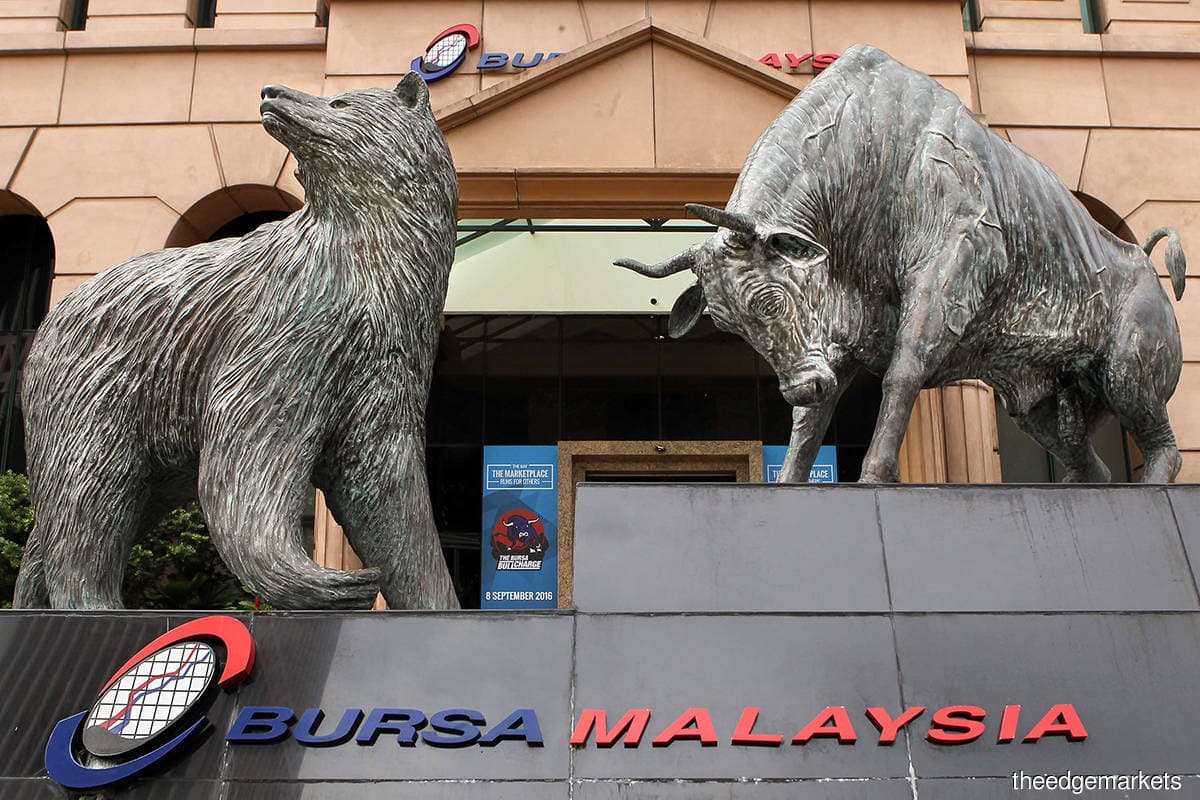
KUALA LUMPUR (Jan 19): Hong Leong Investment Bank (HLIB) Research expects Bursa Malaysia Bhd’s quarterly core earnings to potentially be RM100 million to RM105 million for the fourth quarter ended Dec 31, 2020 (FY20), bringing its FY20’s sum almost doubling year-on-year (y-o-y) to RM370 million.
HLIB Research analyst Jeremy Goh said in a note today this is based on Bursa's 4Q20 average daily value (ADV) of RM4.83 billion (-16% quarter-on-quarter; +170% y-o-y), barring any unforeseen swings in the cost structure.
Using the lower end of the estimated range, he projected Bursa's FY20 earnings to be almost doubling from FY19’s RM189.2 million to slightly above RM370 million.
“If met, this would surpass our previous forecast by 11.5% and the consensus by 4.9%,” said Goh.
Bursa's 4QFY20 results are tentatively due for release on Feb 2, 2021.
Goh also said a volatile recovery path in 2021, the second movement control order's (MCO 2.0) possible boost to retail participation and potential return of foreigners all spell well for Bursa's ADV this year.
“We raise [our] FY20/21/22 ADV [forecasts] by 11% to 15% to RM4.21 billion/RM3.36 billion/RM2.94 billion respectively to reflect actual FY20 numbers and a higher base for FY21 to FY22 from more vibrant market participation. Consequently, [our] FY20/21/22 earnings [forecasts] are raised by 11.5%/12.8%/15.9% respectively,” he said.
While holding the rather consensus view that 2021 will be a vaccine-led recovery year, Goh expects heightened volatility along the recovery path.
This is because there will likely be a lot of opposing news flows between positive vaccine roll-outs and a still rising Covid-19 count (both domestically and globally); volatility could be amplified further by the recent reintroduction of regulated short selling (RSS).
Goh also believes the first half of 2021 (1H21) will very much be a “trading market” as investors actively rotate back and forth between recovery plays and gloves.
“As such, despite the high ADV base last year (RM4.21 billion; +118% y-o-y), it may be possible for this figure to be sustained in 2021,” he said.
He also noted that earlier concerns over “retail liquidity” evaporating after the automatic loan moratorium period ended Sept 30, 2020 had been proven untrue.
“In fact, average retail participation rose to 40% (value: RM1.92 billion) in 4Q20 versus September’s 38.3% (value: RM1.8 billion).
“Looking ahead, with more people locked down at home during MCO 2.0 (Jan 13 to 26; we believe it may be extended to last at least four weeks), this could prompt retailers to enter the market in a more aggressive manner,” he said.
According to him, this phenomenon was witnessed during the previous MCO where retail participation rose from 27.1% pre-MCO 1.0 (January to mid-March last year) to 32.5% (during MCO 1.0 from mid-March to end-April last year).
While foreign ADV traded on Bursa rose 21.9% y-o-y in 2020, Goh said, its participation rate fell from 29% to 17% on back of a higher share taken by domestic retail investors from 25% to 37%.
“Foreign investors were net sellers on Bursa in six of the past seven years (2020: -RM26.4 billion, the highest outflow).
“With the foreign shareholding now at a low of 20.7%, the base appears much more palatable to envision their re-entry, especially so if they turn ‘risk on’ amid a vaccine-driven recovery climate,” he said.
Goh maintained his "buy" call on Bursa.
Despite the earnings upgrade, he only raised Bursa's target price (TP) slightly to RM11.46 from RM11.45 as the positives were offset by the rolling over to a lower earnings base from mid-FY21 to FY21.
At the time of writing today, Bursa had gained two sen or 0.23% to RM8.53, valuing the company at RM6.9 billion.